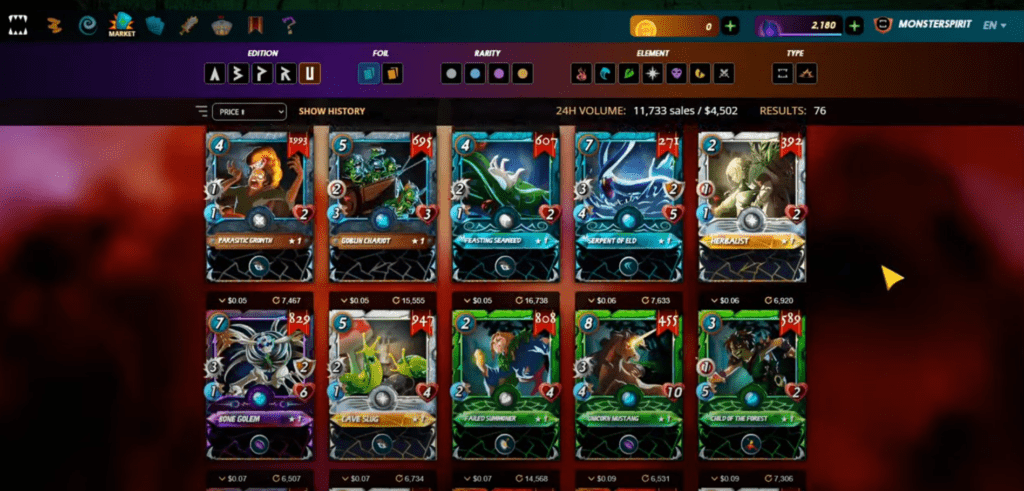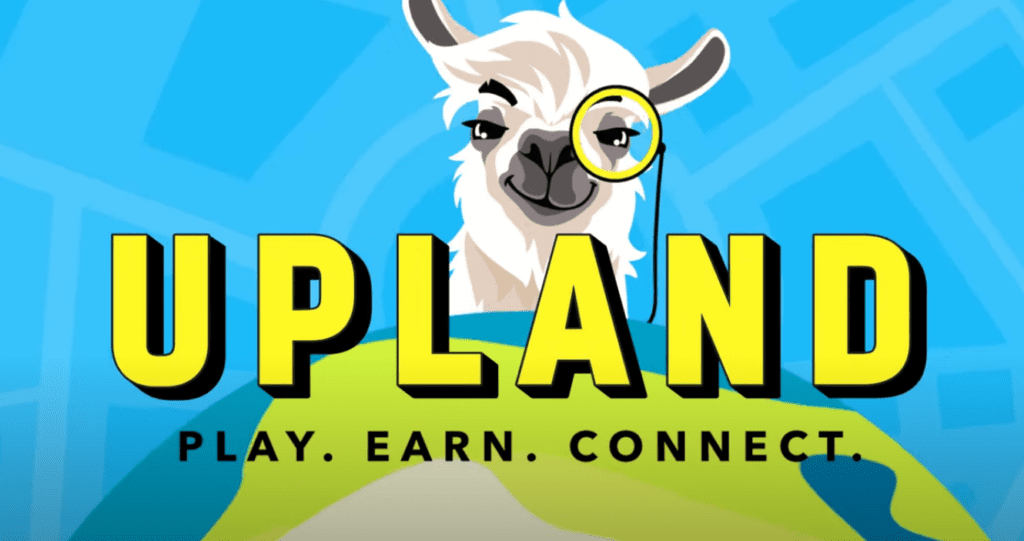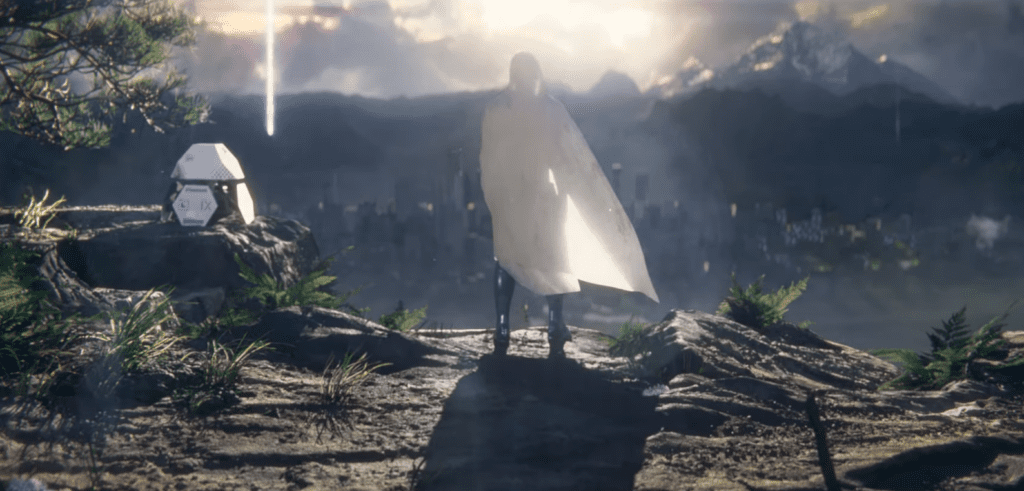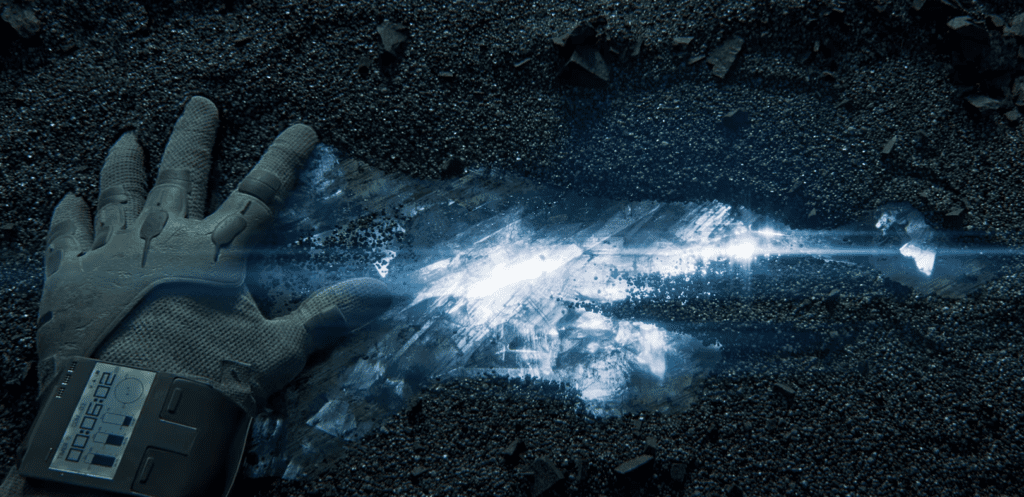The gaming industry has experienced a seismic shift in the past decade. The culprit? Blockchain technology!
Games implementing them have exploded in popularity, with more and more gamers being drawn to the play-to-earn model as months go by. Playing games and getting rewarded for doing so? It’s almost like a no-brainer!
The technology behind them has opened up a ton of new opportunities in the gaming industry – decentralized marketplaces, provably fair gameplay, player-owned assets, you name it. With its alluring potential for growth and rewards, it’s no wonder that blockchain technology is quickly becoming a staple in the gaming industry.
With this in mind, new game developers must understand the different blockchains available for game development. In this article, we’ll explore the best blockchains for gaming, including their main features and game examples, to help you choose the best one for your gaming needs. Furthermore, we’ll show you the many advantages of implementing blockchain in your creations.
Have a good read!
The 6 best blockchains for gaming
If you’re looking to create blockchain-based games, it’s important to choose the one that best fits your game and philosophy. Let’s introduce you to some of the best blockchains for gaming:
Ethereum (ETH)
When it comes to building decentralized applications (better known by the term “dApps”) and blockchain games, Ethereum has been the top dog for a while. Run by the Ethereum community, this blockchain network is renowned for its flexibility, security, and ability to integrate with other apps. Furthermore, the pioneering network introduced non-fungible tokens – the NFTs! – to the world, which are all the rage (if not a bit controversial).
Another of Ethereum’s many aspects is the size of its community. With a large and active group of developers, designers, and builders, Ethereum has been able to maintain its position as one of the most popular blockchain platforms out there. Granted, it is the second-largest and most-used blockchain platform in the world of crypto coins, only being shadowed by the OG Bitcoin.
Boasting impressive numbers of users and transactions totaling close to a million dollars every day, Ethereum-based blockchain games are making waves in this new, but very competitive niche.
There are many popular games built with Ethereum, like Gods Unchained, Decentraland (which made the news after some virtual real estate was sold for a staggering $2.4 million), and Sorare.

Worldwide Asset eXchange (WAX)
If you’re into blockchain gaming, you might have heard a thing or two about WAX – the Worldwide Asset eXchange. Launched in 2019 as a proof-of-stake (PoS) network for e-commerce payments, WAX has since evolved into a rich ecosystem for building and deploying Web3 games. Two of the platform’s biggest selling points are its free transactions and decentralized model, which fosters a dynamic and user-driven environment.
On the WAX blockchain, gamers can find a variety of blockchain-based games to tickle their fancy. Despite the crypto market’s recent ups and downs, many WAX games have seen growth in their daily play counts.
Some popular games developed using the WAX blockchain include Alien Worlds, Splinterlands, and Farmers World.

EOS (EOS)
Not the most popular platform, but definitely among the highest levels of ambition, EOS is a blockchain protocol that aims to process millions of transactions per second while incurring no extra fees. Yes, you heard it right – no fees!
EOS’s blazing-fast processing speeds have made it a popular choice among blockchain game designers, especially those looking for a faster alternative to Ethereum, with many developers making the switch to EOS.
Some popular games developed using the EOS blockchain protocol include Upland, Prospectors, and Blankos Block Party.

Polygon (MATIC)
Initially known as Matic Network, Polygon was created back in 2017 as a Layer-2 scaling solution for Ethereum. However, it has since evolved into a fully-fledged blockchain protocol that supports the development of dApps.
Their first foray into the blockchain gaming industry began in July 2021 with the launch of Polygon Studios and their ecosystem. Polygon’s highly scalable infrastructure, dirt-cheap fees, and quick transaction times have made it a popular choice among developers looking to use blockchain technology in their projects.
Polygon has even collaborated with some of the biggest names in the gaming industry, such as EA, Riot Games, and Activision. With all these factors considered, it is no wonder why Polygon has become a force to reckon with in the world of play-to-earn games.
There are many Web3 games created with Polygon, like Planet IX and Mintworld.

Solana (SOL)
Launched in 2020, Solana has quickly become a formidable player in the world of blockchain development. The platform aims to revolutionize blockchain technology by providing quick transaction speeds, low latency, and lower transaction fees. Developers created a unique consensus algorithm – called Proof of History (PoH) – which is designed to improve the ecosystem’s performance and speed, enabling it to process up to 65,000 transactions per second.
When it comes to play-to-earn and blockchain games, its ability to handle large amounts of in-game activity without slowing down has made it emerge as a popular platform for blockchain games.
Some projects created with Solana include StepN, Star Atlas, and Aurory.

Polkadot (DOT)
Polkadot was created in 2016 by Gavin Wood, an Ethereum co-founder. The platform is highly optimized for games and aims to create an interconnected blockchain network, which would allow different blockchains to communicate and interact with one another.
In blockchain game development, Polkadot’s interoperability allows for cross-chain integration and arbitrary data transfer, enabling developers to create games with high levels of sophistication. Furthermore, with its high scalability and low transaction fees, Polkadot offers a reliable and efficient platform for developers to build their games on, becoming a popular choice for play-to-earn games.
Some games created using the Polkadot blockchain include PolkaCity, Polkapets World, and Polychain Monsters (formerly known as Polkamon).

How is blockchain technology used in gaming? Learn its advantages
There are many advantages of using blockchain technology in games. Let’s look at some of them:
- Digital ownership and decentralization: in blockchain-based games, players truly own in-game assets, such as equipment, characters, valuable collectible items, and NFTs, as they are stored on a decentralized ledger. This means that players can transfer, trade, or sell their assets without the need for a centralized authority;
- Secure transactions: as blockchains are secured by cryptographic protocols, it’s extremely difficult to hack and manipulate them directly. For this reason, blockchains are ideal for transactions that involve real-world currency and/or valuable in-game items;
- Transparency: players can verify ownership of valuable items and transaction histories without the need for a centralized authority.
- Immutable game data: blockchains are immutable by design, and can be used to store important game data, such as high scores, leaderboards, or game progress. This helps to prevent cheating and fraudulent behavior, as well as ensure that data is readily available at all times;
- Interoperability: by using the same blockchain network, games can interact with each other, allowing for a seamless item and asset trading between different games. This might lead to greater levels of player engagement and a robust gaming ecosystem.
Navigating the Crypto Gaming Universe: The 6 Best Blockchains for Gaming
In the ever-evolving realm of crypto gaming, where the metaverse is swiftly becoming a reality, the choice of the best blockchain can significantly impact the gaming experience. Six blockchain platforms stand out as prime enablers for the future of crypto gaming.
- Ethereum: This blockchain heavyweight needs no introduction, as it plays a pivotal role in hosting many crypto games, enabling seamless trading of digital assets and in-game items using its robust smart contracts.
- Worldwide Asset eXchange (WAX): WAX is making a name for itself by enhancing the play-to-earn crypto gaming model. Its decentralized platform enables users to earn gaming tokens while having fun in various crypto-powered games.
- EOS: EOS offers high-speed transactions, making it a favored choice for crypto games. Its gaming-focused ecosystem has given rise to a plethora of popular blockchain games.
- Polygon: Recognized for its low gas fees and high scalability, Polygon provides an ideal environment for gaming tokens and NFT-based assets.
- Solana: Boasting lightning-fast transaction speeds and scalability, Solana has become the backbone for several popular crypto game franchises.
- Polkadot: As a pioneering multi-chain network, Polkadot is changing the game by connecting different blockchains. This innovation is ushering in a new era of interoperability, allowing users to make transactions across multiple chains, even outside of the game world.
These blockchain giants are not just transforming the gaming industry; they’re defining the future of play-to-earn crypto gaming and the metaverse itself. From earning gaming tokens to purchasing digital assets, the possibilities in the crypto gaming space are boundless, all thanks to the underlying blockchain tech.
Closing thoughts
In conclusion, blockchains have become a valuable tool in the gaming industry, enabling new and exciting opportunities for trailblazing game developers and players alike. The decentralized nature of blockchain technology allows for more secure, transparent, and efficient gameplay and transactions.
With the recent popularization of NFT games and the rise of blockchains specifically designed for gaming, developers now have a range of options to choose from when designing and creating their games – from the giant that is Ethereum to lesser-known, but equally viable Solana and Polkadot to name a few.
Furthermore, the field is set to grow at a staggering CAGR of 70.3% according to a recent analysis by Markets and Markets, growing from a “measly” $4.6 billion in 2022 to $65.7 billion in 2027. However, to have a piece of this billion-dollar pie, you first need to design and create a game. And that’s where we come in!
At Main Leaf, we develop charming games from scratch, creating all the necessary assets and infrastructure for them to be successful. Our team of 70+ experts can masterfully take on the job of incorporating blockchain technology into the game of your dreams and make it shine brighter than the sun. Well-versed in both Unity and Unreal game engines and with 13 years of experience in the gaming industry, our creations are nothing short of incredible!
Are you ready to start the development of your blockchain-based game with Main Leaf? All you have to do is request a game quote below. Don’t worry, we’ll get back to you within 24 hours!

